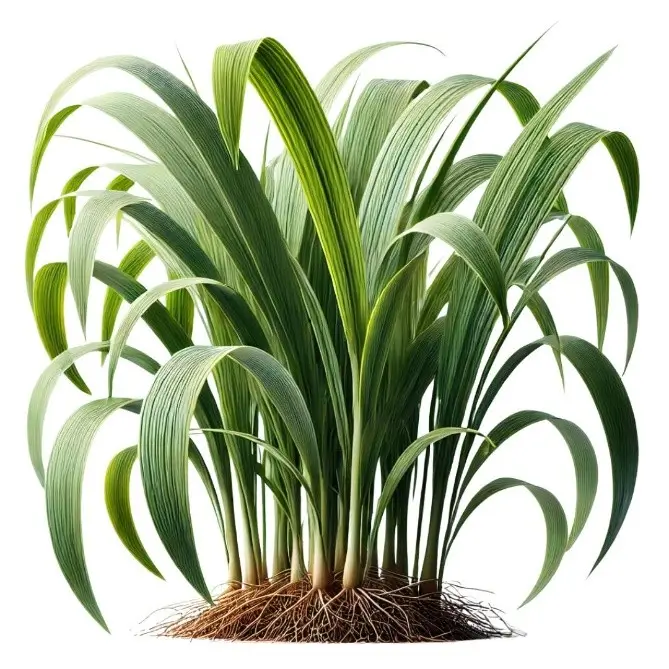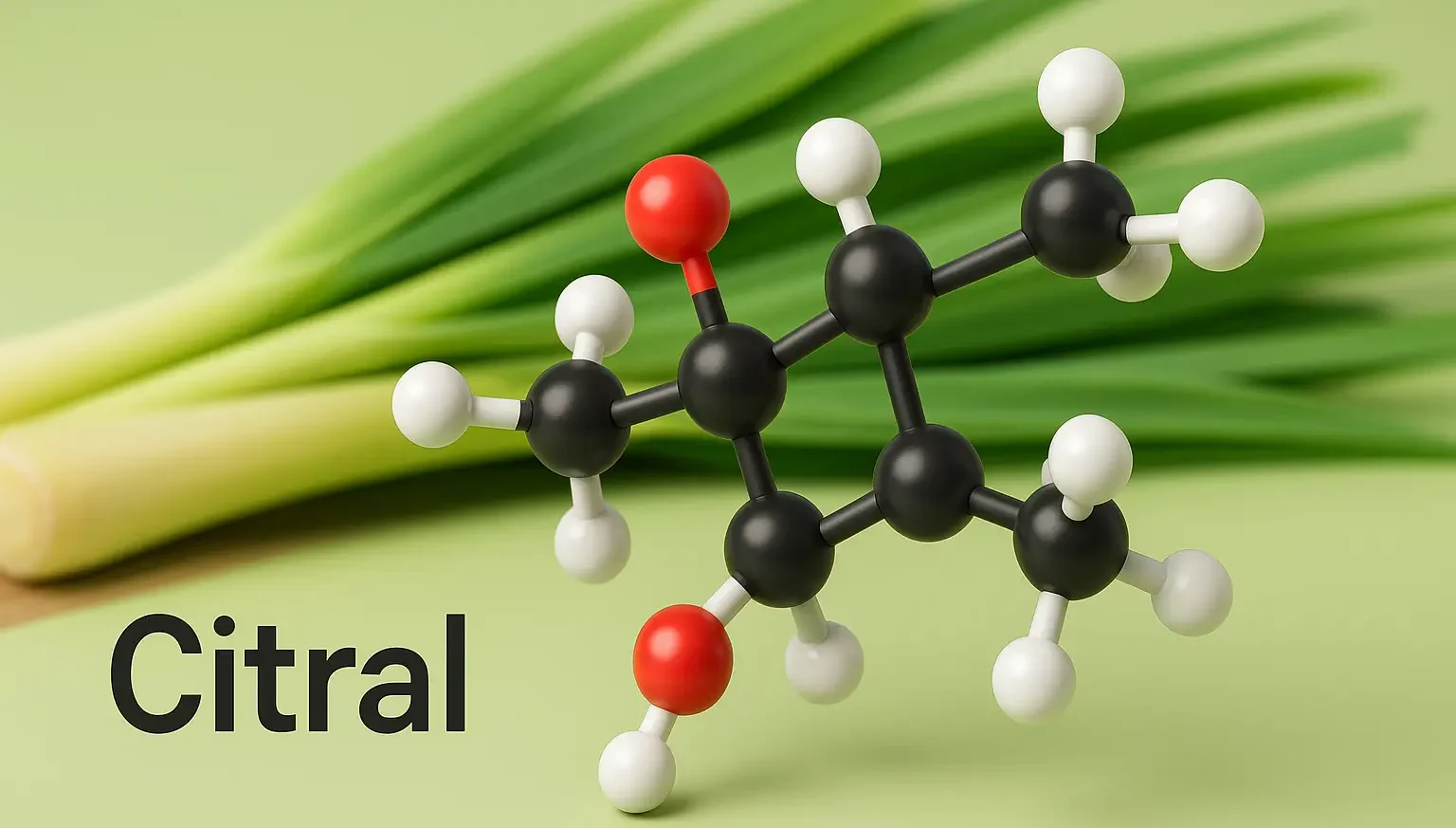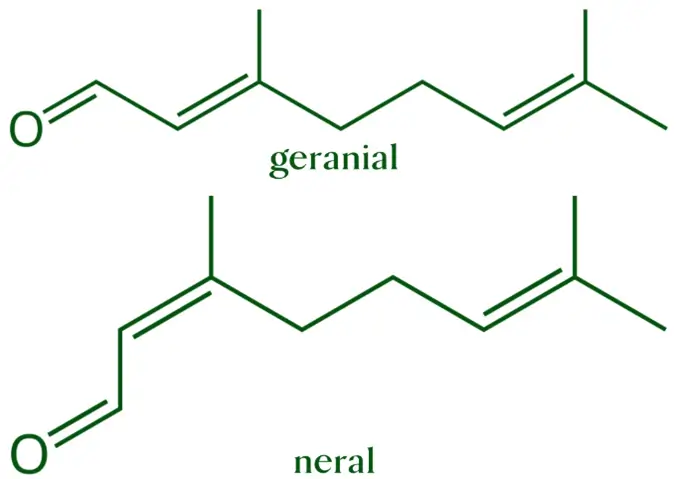Source and Occurrence of Citral:

- Citral is a key component of lemongrass (Cymbopogon citratus) and lemon myrtle (Backhousia citriodora) essential oils.
- It exists in two isomeric forms: geranial (trans-citral) and neral (cis-citral).
Isolation
-
Extraction:
- Steam Distillation: Similar to menthol, citral is extracted via steam distillation of lemongrass leaves.
- Solvent Extraction: Alternatively, organic solvents like hexane or ethanol can be used to extract essential oils containing citrals.
-
Separation:
- Post-distillation, the essential oil is separated from water.
- Fractional Distillation: To isolate citrals from other components based on boiling points.
-
Purification:
- Chromatography: Utilizing techniques like column chromatography on silica gel to separate citrals from other terpenoids.
- Recrystallization: Not typically applicable for citrals as it is a liquid at room temperature, but distillation under reduced pressure can enhance purity.
Identification
-
Physical Properties:
- Appearance: Colorless liquid.
- Boiling Point: ~230°C.
- Odor: Strong lemon-like aroma.
-
Spectroscopic Techniques:
- IR Spectroscopy: Detects functional groups such as aldehyde (~1720 cm⁻¹) and C=C stretching (~1650 cm⁻¹).
- ¹H and ¹³C NMR Spectroscopy: Elucidate the molecular structure, confirming the presence of aldehyde and double bonds.
- Mass Spectrometry: Molecular ion peak at m/z 152.
-
Chromatographic Techniques:
- GC: Essential for separating citral isomers and confirming purity via retention times.
- HPLC: Used for quantitative analysis.
Advertisements
Analysis
-
Quantitative Analysis:
- GC-FID: Measures citrals concentration in essential oils.
- HPLC: Provides precise quantification in purified samples.
-
Quality Control:
- Assessing purity through spectral data and chromatographic profiles.
- Ensuring absence of impurities or other isomers beyond acceptable limits.
Applications and Significance of Citral:
- Citral is widely used in the flavor and fragrance industry for its lemon scent.
- It also possesses antimicrobial and anti-inflammatory properties, making it valuable in cosmetics and medicinal formulations.


